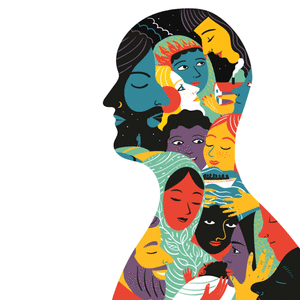Blog Information
- Posted By : UniqueThis
- Posted On : Mar 04, 2024
- Comments : 2
- Views : 622
- Category : Culture
- Description :
Overview
Introduction: Culture – it's more than just a set of customs and traditions; it's the invisible hand that guides our thoughts, actions, and interactions with the world. In this blog, we delve into the fascinating interplay between culture and behavior, exploring how the values, norms, and beliefs of society shape our identities and influence our daily lives.
Culture as the Blueprint of Society: At its core, culture serves as the blueprint of society – the shared set of beliefs, values, and practices that define a group of people and give meaning to their lives. From the way we greet one another to the food we eat and the rituals we observe, culture shapes every aspect of our behavior, often without us even realizing it.
Consider, for example, the concept of time. In some cultures, punctuality is highly valued, and arriving late to a meeting is seen as disrespectful. In others, time is viewed more fluidly, and tardiness is not frowned upon. These cultural norms not only dictate our behavior but also influence our perceptions of what is considered acceptable and appropriate.
Norms and Expectations: One of the most powerful ways culture shapes behavior is through the establishment of norms – the unwritten rules and expectations that govern social interactions. Whether it's the expectation to respect elders, to speak softly in public spaces, or to dress modestly, cultural norms exert a powerful influence on our behavior and shape our sense of identity and belonging.
Moreover, cultural norms can vary widely from one society to another, leading to differences in behavior and social etiquette. What may be considered polite in one culture may be seen as rude or offensive in another, highlighting the importance of cultural sensitivity and cross-cultural communication in our increasingly globalized world.
Socialization and Identity Formation: From the moment we are born, we are immersed in the rich tapestry of our cultural heritage, learning the values, beliefs, and customs of our society through a process known as socialization. Our family, peers, schools, and media all play a role in shaping our cultural identity and influencing our behavior.
Through socialization, we internalize the norms and values of our culture, adopting them as our own and incorporating them into our sense of self. This process of identity formation is deeply intertwined with culture, shaping not only how we perceive ourselves but also how we relate to others and navigate the world around us.
The Power of Cultural Change: While culture exerts a powerful influence on our behavior, it is not static – it is constantly evolving and adapting to changing circumstances and societal values. Throughout history, cultures have undergone transformation and change, influenced by factors such as technological advancements, globalization, and social movements.
By understanding the ways in which culture shapes behavior, we can harness its power to effect positive change and create a more inclusive and equitable society. By challenging outdated norms and fostering cultural diversity and acceptance, we can build a world where everyone has the freedom to express their identity and thrive.
Conclusion: As we navigate the complex landscape of human behavior, let us remember the profound influence of culture in shaping our thoughts, actions, and interactions with the world. By embracing the richness and diversity of our cultural heritage, we can create a more compassionate, empathetic, and harmonious society where everyone has the opportunity to flourish.
So, dear readers, I invite you to reflect on the ways in which culture shapes your own behavior and identity. How has your cultural background influenced your values, beliefs, and social interactions? And how can we work together to foster a culture of understanding, respect, and inclusivity in our communities and beyond?
